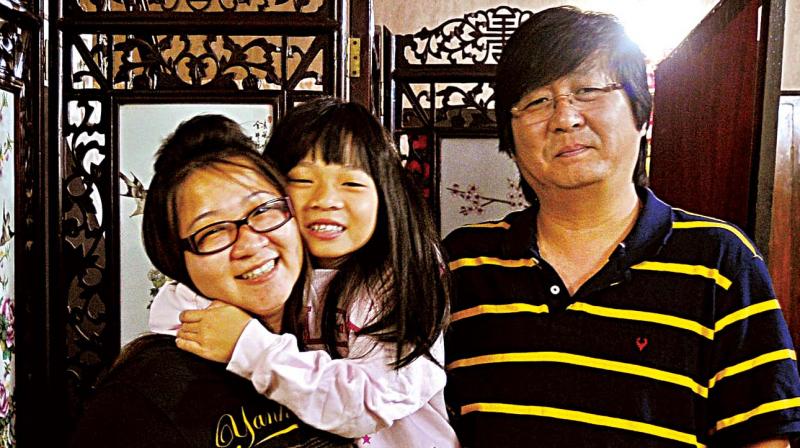Urban Legend: Happiness, prosperity in the year of the rooster

The Chinese New Year, or the Spring Festival, is marked by a fortnight of good food, fireworks and gambling. Jason Chiu, a Han Chinese who lives in the city, talks to Priyam Chhetri about why this is of family, gratitude and remembering one’s ancestors who, in Chinese culture, are akin to God. The Year of the Rooster is one of luck and prosperity...
Red cloth Dui Lians, with Chinese couplets on them on doors, glowing lanterns, family get togethers, a variety of traditional Chinese food, merry making and fireworks mark the beginning of the biggest festival of the Chinese, The Lunar New Year. Also called the Spring Festival, the end of last month saw the beginning of The Year of the Rooster, the recent cycle in the Chinese New Year zodiac. Exceptional good luck is expected to fall into the laps of the ones born in this year, believe the Chinese folk. The celebrations last for about a fortnight, with a phases coinciding with the phases of the moon on the lunar calendar. This year, the festivities run up to mid February.
Nyip Nyan Ka or the beginning marks the start of celebrations, while Tsut Nyanka, marks the end, says Jason Chiu, a Bengaluru-based Han Chinese. “Every Chinese family celebrates New Year’s and it is our biggest festival. In China, people get long leaves for the entire fortsnight. It is a celebration of new beginnings, of family togetherness and appreciating all the good we’ve been blessed with. Chinese also have their weddings, new investments and ventures in this span as it is considered auspicious,” he explains.
They offer prayers to their ancestors and a food palate, traditionally called the five-star, which includes any three seasonal fruits and two proteins. “We follow Confucianism, the teachings of Confucius. We believe in our ancestors more than a single God figure. We pray to them for protection, blessings and positivity,” he says pointing to a ledge on the wall that has a black and white photograph of his grandfather, amongst other family members.
The ledge is on a higher level than the rest of the furniture, as a mark of respect. “We play the Chinese version of Black Jack, we call it One Luck and we are big on gambling, so this is that time of the year that we actually play cards along with the entire family,” he adds.
Chiu’s was one of the first families to migrate to India after The Great Proletarian Cultural revolution in China headed by Mao Zedung. “My grandfather migrated to India after the revolution in China. The political ideology at the time wanted equal distribution of riches and wealth amongst all and my family was quite well off I’m told. Since he didn’t accept to give away his hard-earned money, he fled to Kolkata in 1962.”
The year, incidentally also saw the Sino Indian war, and he says, as all wars go, it took hopes of a new life with it. “My grandfather had settled down in Kolkata and he was among the first ones there to start a tannery industry. He set up a leather manufacturing company called Sinmei and life was quite stable for sometime, my father used to tell me. Then the war between the China and India happened and a lot of Chinese were taken prisoner. My grandfather was one of them,” he says with his eyes fixed to the floor.
The prisoners were eventually released a few years later but the scars of the incident remained. “We moved to Bangalore after that with plans of moving abroad to Canada. I don’t remember much, I was very young but I do remember my father staying back in this city with my mum and me. He refused to run, he was a realist who wanted independence for himself and his family.” The Chinese culture being centred around the oldest male member of the family, this was like a small rebellion, he laughs. Jason, whose Chinese name is Chiu Shii Shin, meaning someone who loves new beginnings, was perhaps aptly named.
After 39 years of being in the city, he says his father made sure that he never forgot his roots. “I was always raised in a very Chinese environment and I try to do the same with my daughter Mia. We speak in Mandarin at home and our community in the city is pretty tight knit, sop this time is when we meet and take a break from our daily routines to spend time with family and friends.” he says.
The exact numerology of the beginning of the festival is unclear but according to folklore, it started with a fight against a mythical beast called the Nian, or ‘Year’. It is rumoured to have looked like an ox with a lion head that lived deep in the sea. On New Year's Eve, it is believed that it will come up to land and harm people, life stock and property. Tales suggest that the only thing that could stop it was the colour red, fire and loud noises.

